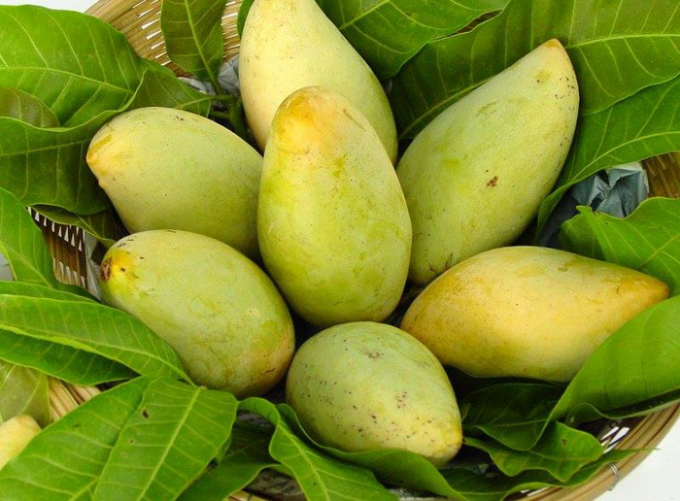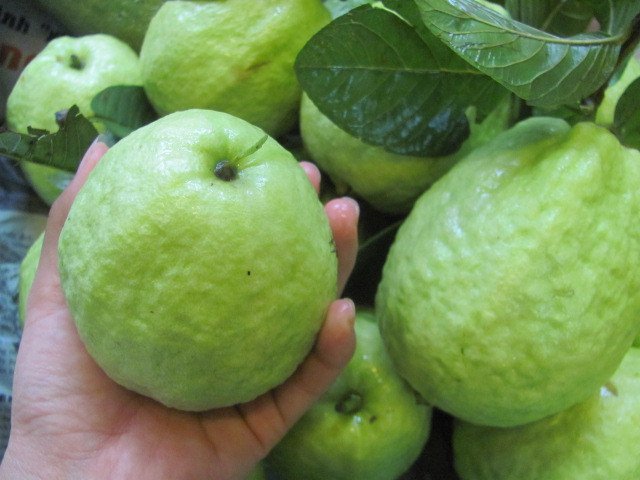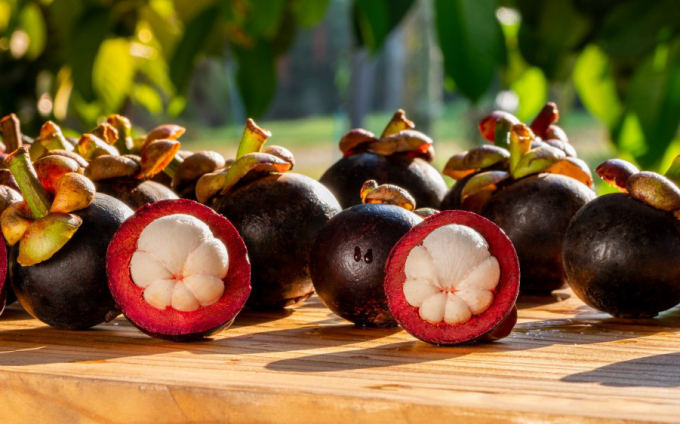June 17, 2025 | 22:28 GMT +7
June 17, 2025 | 22:28 GMT +7
Hotline: 0913.378.918
June 17, 2025 | 22:28 GMT +7
Hotline: 0913.378.918

Vietnamese mango, guava and mangosteen imported into Russia increase strongly
According to the Internation Trade Centre (ITC), In January 2021, Vietnam is Russia’s fourth-largest supplier of mango, guava and mangosteen (HS Code 080450) in volume, reaching 226 tons, worth US$ 807 thousand, up 114% in volume and 62.7% in value over January 2020. The amount of mango, guava and mangosteen imported from Vietnam occupies 6.1% of Russia’s total import volume of this group of fruits.
In January 2021, Russia has imported mango, guava and mangosteen mostly from Peru, reaching 2,550 tons, valued at US$ 4.4 million, up 15.6% in volume and 6.7% in value compared to January 2020. The import proportion from this market accounts for 69.4% of the total import volume.
In the first month, China is right behind Peru with 407 tons in volume and US$ 917 thousand in value. Brazil ranked third in terms of mango, guava and mangosteen supplies to Russia with 285 tons. Despite being in the third rank in volume, but in value terms, Brazil was far behind Vietnam. To be specific, in January, the value of mango, guava and mangosteen that Brazil imported into Russia was US$ 503 thousand, while that of Vietnam was US$ 807 thousand.

Vietnamese guava
According to the Import and Export Department (Ministry of Industry and Trade), the Russian market still has plenty of room for Vietnamese exporters to make use of, because Russia's production of vegetables and fruits is still limited, and due to climatic conditions, Russia cannot produce tropical fruits and vegetables.
In the meantime, the Russian residences’ demands for consumption of vegetable and fruit are increasingly elevating. Therefore, Russia has to import up to 2/3 of the annual vegetable and fruit consumption amount.
As informed by the ITC, the Russian market’s imports of mango, guava and mangosteen have increased sharply in the 2016 - 2020 period with an average increase rate of 68.4%/year. The 2020 import value reached US$ 83.46 million.

Mangosteen is one of Vietnam’s famous specialties
In the past years, exports of mango, guava and mangosteen from Vietnam to Russia are still modest. Statistics from Russia show that in 2017, out of a total of nearly 12 thousand tons of mango, guava and mangosteen imported to Russia, only 59 tons were from Vietnam (worth US$ 300,000).
In 2018, out of a total of nearly 26 thousand tons of mango, guava and mangosteen imported to Russia, 396 tons were from Vietnam, worth nearly US$ 2 million.
In 2019, Vietnam imported to Russia 1,006 tons out of the total 31 thousand tons of mango, guava and mangosteen imported to this country, valued at US$ 5.23 million.
To sum up, despite having modest import volume in Russia, Vietnamese supplies of mango, guava and mangosteen to the Russian market are increasing through the years. Additionally, the import value of this group of fruits from Vietnam to Russia has also increased sharply in the past few years. This shows that the infiltration of Vietnamese mango, guava and mangosteen are deeper and gradually creating a foothold in this potential market.
/2025/06/17/2344-1-131758_261.jpg)
(VAN) Amid tariff risks and growing trade barriers in the U.S. market, Australia is emerging as a promising destination to sustain the growth momentum of Vietnam's shrimp exports.
/2025/06/17/2013-1-nongnghiep-112009.jpg)
(VAN) This notable growth trend reflects the global taste for fresh, nutritious fruits and the expanding use of lychees across various sectors.

(VAN) The political and cultural insulation of Japan’s beloved grain is falling apart, and experts warn the country’s relationship with the staple will have to adapt.

(VAN) Noting risks, report examines impacts of avian influenza, changing trade patterns since 2022, fish fraud, and shipping industry’s net-zero goals.

(VAN) Mr. Tran Quang Bao, General Director of the Forestry and Forest Protection Department, met and worked with the International Wood Products Association to promote cooperation in the field of timber trade.

(VAN) China's outbound shipments of rare earths in May jumped 23% on the month to their highest in a year, though Beijing's export curbs on some of the critical minerals halted some overseas sales.

(VAN) To sustain capital flow, administrative reform alone is not enough; what farmers truly need is an ecosystem where both government and businesses grow together in support.